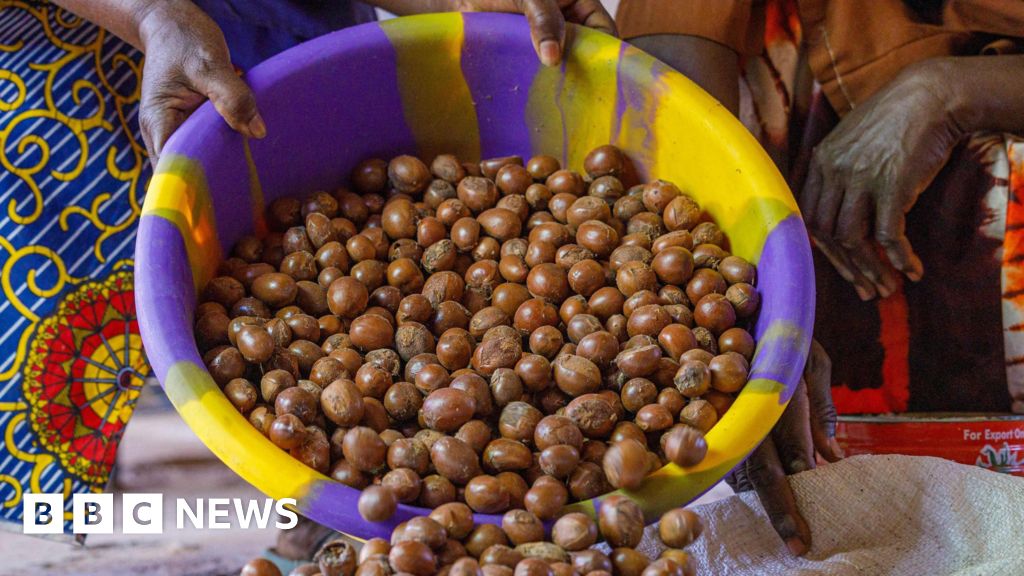Nigeria has announced a six-month ban on the export of raw shea nuts from which many beauty creams are made. The move is aimed at making the trade more lucrative as Nigeria is losing out by not producing much shea butter locally. The country produces nearly 40% of the world's annual crop, but it only accounts for 1% of the $6.5 billion (£4.8 billion) global market - a situation Vice-President Kashim Shettima described as unacceptable. Harvested fruit from shea nut trees have to be crushed, roasted, and boiled to extract their oil to produce the shea butter used in cosmetics.
The butter is also used in the food industry in the production of some sweets like chocolate and ice creams - and in pharmaceuticals too. Shea trees grow in the wild from West to East Africa - a vast strip known as the 'shea belt'. Small-scale farmers, often women, also plant and harvest them in these areas. Shettima said the temporary ban would enable Nigeria to move from being an exporter of the raw nuts to a global supplier of refined shea products. '
This will not only provide more jobs locally as refining will be done here, but will also enhance income for the government,' he noted.
The butter is also used in the food industry in the production of some sweets like chocolate and ice creams - and in pharmaceuticals too. Shea trees grow in the wild from West to East Africa - a vast strip known as the 'shea belt'. Small-scale farmers, often women, also plant and harvest them in these areas. Shettima said the temporary ban would enable Nigeria to move from being an exporter of the raw nuts to a global supplier of refined shea products. '
This will not only provide more jobs locally as refining will be done here, but will also enhance income for the government,' he noted.





















